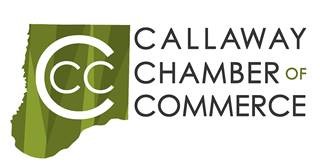Optimize Business Operations with Effective Digital Archiving
In the rapidly evolving digital landscape, businesses must adapt to new methods of managing their archives to stay competitive. Digital archiving offers a transformative approach to data management, providing enhanced accessibility and efficiency. By implementing strategic digital archiving practices, organizations can streamline operations, reduce costs, and improve data security. This article delves into various strategies that can help businesses optimize their digital archives, ensuring they remain agile and responsive.
Empowering Employees with Digital Literacy
To make the most of your digitized archives, it’s crucial to empower your employees with digital literacy skills. Training your team to navigate and utilize new technologies ensures they can handle the complexities of modern data management systems. By fostering these skills, you enhance data accessibility and streamline operations, leading to improved efficiency and productivity. Tailored training programs should address the diverse skill levels and learning needs of different employee groups, preparing your workforce for current technological demands and positioning your organization as a leader.
Unlocking the Power of OCR for Efficient Document Management
One of the most effective ways to digitize your business archives is by using OCR technology. This tool allows you to convert scanned documents into searchable and easily organized digital files. By leveraging advanced algorithms, OCR transforms printed text into machine-readable data, making it a breeze to locate specific information without wading through stacks of paper. This not only enhances document accessibility but also reduces the time spent on manual data entry. Integrating OCR into your document management system leads to enhanced document management, faster information retrieval, and improved organization. Follow these OCR usage tips to begin.
Assessing Physical Archives for Effective Digitization
Before diving into digitization, it’s essential to assess the current state of your physical records. Identify materials that are physically fragile or at risk, such as old photographs or deteriorating documents, and prioritize them for digitization to prevent further damage. Consider the historical or cultural importance of the records, as these may hold significant value for future generations. Evaluate your available resources, including budget, staff expertise, and equipment, to ensure a feasible digitization plan. By understanding these factors, you can strategically prioritize which materials to digitize.
Choosing the Right Digital Archiving Software for Your Business
Selecting the right digital management software is crucial for effectively managing and accessing your digital archives. With the digital archiving market booming, investing in a robust system is more important than ever. Look for software that supports multiple operating systems and integrates seamlessly with third-party systems like ERP or financial accounting platforms. This integration is vital for smooth digital processes, including invoice processing and contract management. Prioritize software with advanced search capabilities to facilitate easy retrieval of archived documents.
Invest in Cloud Storage for Digital Archives
Embracing cloud storage solutions can significantly enhance the scalability and remote accessibility of your digital archives. Cloud computing offers a flexible and cost-effective alternative to traditional storage methods, widely utilized by gallery, library, archive, and museum professionals. Despite challenges like system integration and access management, the cloud provides a sustainable solution that aligns with staffing expertise and budgetary constraints. As digital archives continue to expand, adopting cloud storage ensures efficient data management and facilitates seamless access.
Streamline Business Potential Through Data Analytics
Utilizing data analytics tools can transform your digitized business archives into a treasure trove of insights that drive informed decision-making. These tools enable you to analyze vast datasets, revealing patterns and trends that might otherwise remain hidden. As the data landscape evolves with technologies like AI, leveraging these tools becomes crucial for maintaining a competitive edge. Data visualization software can help convert complex data into easy-to-understand visual formats, making it accessible to stakeholders at all levels. By embracing data analytics, you enhance your organization’s performance, improve customer satisfaction, and gain a strategic advantage in the marketplace.
Safeguarding Your Digital Archives with Advanced Encryption
To ensure the security of your sensitive digital archives, implementing advanced encryption techniques is essential. Utilizing robust encryption algorithms like Advanced Encryption Standard (AES) or RSA protects your data from unauthorized access and potential breaches. Secure transmission protocols such as Secure File Transfer Protocol (SFTP) or Transport Layer Security (TLS) help prevent data interception during network transfers. Managing encryption keys diligently, storing them separately from the data they protect, and rotating them regularly maintains security. Combining these measures with strong access controls, including multi-factor authentication and role-based permissions.
Achieving Optimal Data Security with Hybrid Backup Solutions
In today’s digital landscape, safeguarding your business data is crucial, and a hybrid backup strategy offers a robust solution by integrating both local and cloud storage. This approach allows you to store data on-site for quick access and recovery while maintaining a copy in the cloud to ensure redundancy and protection against local failures. By leveraging the strengths of both storage types, you minimize downtime and enhance data availability, even in the face of cyber threats like ransomware attacks. Implementing such a system requires careful planning and investment in IT infrastructure to manage the increased complexity and ensure seamless data synchronization.
Digital archiving is essential for businesses looking to stay competitive and organized. Strong archiving practices improve efficiency and protect valuable data from loss or breaches. As technology advances, companies that adapt will maintain better control over their information. Secure storage and easy retrieval of records help streamline operations and decision-making. A well-structured system keeps businesses prepared for challenges.
Join the Callaway Chamber of Commerce today and start making impactful connections to elevate your business and community involvement!This Hot Deal is promoted by Callaway Chamber of Commerce & Visitor's Center.

